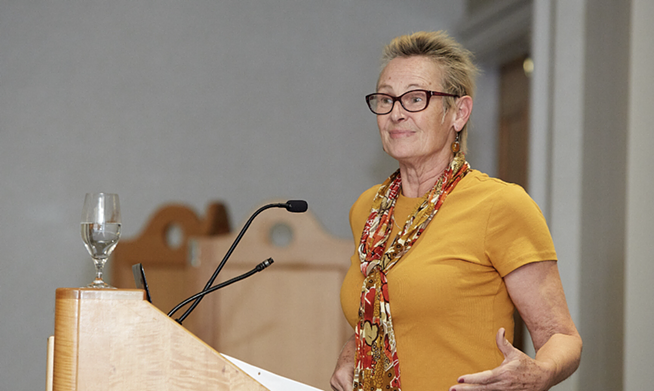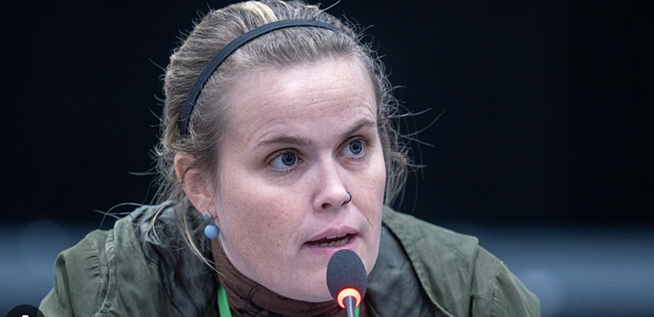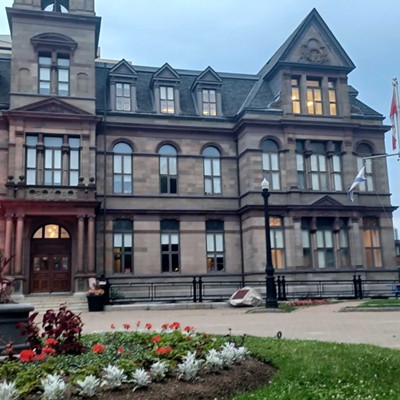Picture this: You’re about to board a cruise ship for a two-week vacation. You’ve worked your butt off for months to be able to save up the money and you can’t wait to start enjoying the fruits of your labour. But before the guy hands you the key to your room, he pulls out a document full of legal jargon and says you can’t start your vacation until you sign it.
“What’s it for?” you ask.
“It says that if something very bad happens to you while we’re at sea, you can’t ever tell anyone about it. Ever. For the rest of your life. And if you do tell someone about it, we’ll go ahead and sue you,” he responds.
Would you sign it? Or would you see it as a huge red flag that something is very amiss on the cruise ship, and run?
It may be an overly simplistic analogy, but being asked to sign a non-disclosure agreement when you start a job is asking employees to do exactly that. It’s asking them to sign away their right to speak about any wrong-doing—or even illegal activity— at the workplace.
NDAs are routinely silencing people around the province—in almost all sectors of work. And that silence is causing long-term trauma to those people—statistically women are impacted at a four times greater rate—as they carry the secrets of what happened to them and, in that silence, the guilt of allowing perpetrators to go on to harm others.
But let’s back up a few decades to the advent of the NDA. Its beginnings were not nearly as nefarious as their current misuse may suggest. Dr. Julie MacFarlane is the co-founder of Can’t Buy My Silence—an international organization working to stop the misuse of NDAs—and explains that in the beginning, NDAs actually made practical sense.
“They began in the late 1970s or early 1980s in Silicon Valley when there was an explosion of technological innovation and the creation of new platforms and software,” MacFarlane tells The Coast in a Zoom call. “The intellectual property process—that would give things trademarks and copyright patterns—couldn’t work fast enough to keep up. And so employers wanted to stop people taking ideas and going to competitor companies and sharing them.”
The reason that NDAs worked so much better in Silicon Valley than the old way of imposing this kind of legal protection of ideas and products—called a restraint of trade—was that you used to have to go to court to get one. That took time and money. And the judges didn’t like those cases and would only give companies maybe a year or two of protection.
“NDAs are forever; they are a written contract saying that this information has been designated as confidential and has to be held as confidential by the parties,” says MacFarlane. “And anything that breaches that is a breach of contract, which means that any money paid under the contract as compensation would have to be paid back.”
What has happened in the last 40 years is that these convenient contracts designed to protect trade secrets—that weren’t yet covered by intellectual property law—are now being used to protect any kind of misconduct or bad behaviour that the employer wants to keep quiet. And that includes allegations of racism, persistent sexual harassment or if somebody complains that there disabilities are not being accomodated.
Boiled down: NDAs are being misused to protect the reputation of the organization rather than the right of the employees—usually women—to share their experience. This allows bad actors to go on to victimize more women. And the cycle continues ad infinitum.
Kristina Fifield, a Halifax-based trauma therapist and victim’s advocate, says that we need to start looking at NDAs through the lens of gender-based violence.
“When we look at all of the complexities of NDAs, we must acknowledge the intersecting privileges connected to abuse of power, by employers and institutions” says Fifield. “Too often, individuals who are in a position of less power are in situations where they are experiencing harassment, bullying, racism, sexual violence and sexual harassment.”
This imbalance of power, coupled with the reality that people need their jobs—to pay their rent, to feed their families—creates an environment ripe for gender-based violence.
“With all of the work we’ve done in the province with the Mass Casualty Commission and the work that went into the Turning the Tide Report, there is so much research on the harmful effect that silencing can have on survivors of violence and abuse,” says Fifield.
Fifield sees first-hand in her work the difficulty victims have continuing to navigate the work environment after being victimized, but also the immense guilt and sense of responsibility that comes with not being able to talk to colleagues and warn others.
In understanding the connection between NDAs and gender-based violence in our society, it becomes clear that eliminating the misuse of these contracts would help us move closer to the province's commitment to the National Action Plan to End Gender-based Violence by implementing recommendations found in Turning the Tide Together.
If as a province we want to stop the continuum of gender-based violence, then addressing and eliminating the misuse of NDAs is crucial—and that means passing Bill 144, which would outlaw the use of NDAs in cases of sexual harassment or discrimination.
“What the bill says is that NDAs cannot be used in cases involving discrimination, harassment or sexual misconduct,” says MacFarlane. “In other words, they could still be used to protect trade secrets, but they can’t be used to cover up wrong-doing.”
MacFarlane and Fifield are teaming up for a public training session on Monday, Sep. 23 at 2pm at All Saints Cathedral in Halifax. Called NDA Informed Training, the session will examine the abusive use of NDAs through an intersectional, gender-based violence trauma lens, and explore the ethical implications and far-reaching consequences of using NDAs to silence survivors/victims, conceal wrongdoing and perpetuate a culture of secrecy.

“One thing that has really motivated me to be a part of this training is the unions role in using NDAs,” says Fifield. “I think so many people are unaware of how their unions are involved in this and I want them to be asking ‘where do we stand on this? Are they using NDAs as part of arbitration, mediation, settlements, dealing with complaints or grievances?’”
She is also hoping that training will help raise awareness among those providing frontline care—like mental health professionals, social workers and advocates—about the nature of NDAs and to help people navigate the situation if they are being asked to sign one (or already have).
“I think that’s the most important thing for myself in getting involved in this work,” says Fifield. “I have seen so many people that have already signed NDAs and are dealing with the fallout, but I also work with people where an NDA is on the table and I help them navigate that process.”
MacFarlane wants to drive home the message that you do have options and that it’s absolutely within your right to push back.
“You can push back against the whole thing or you can propose an additional clause or some new wording that allows you to talk to your family, your friends, your coworkers or your therapist,” MacFarlane says. “That can be very empowering to people.”
Register for the NDA Informed Training session here.
Can’t Buy My Silence will also be hosting a public information session called Silencing Survivors is Violence: Why Nova Scotia needs to Ban Abusive NDAs. This panel discussion will take place on Monday, Sept 23 at 6pm and will examine the connection between NDAs and gender-based violence, as well as other forms of abuse and discrimination. Please register here.
















